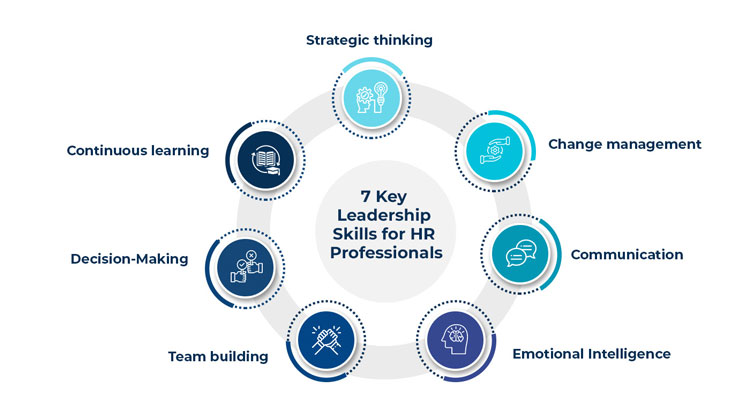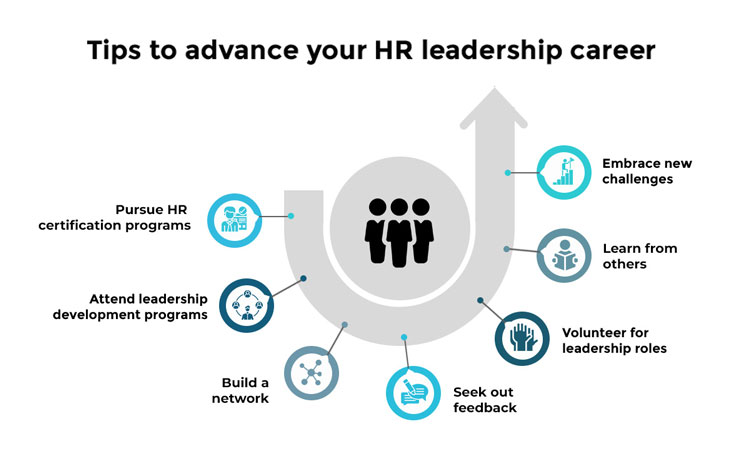
In today's rapidly changing business environment, the role of HR leaders has become increasingly critical. They are responsible for managing and developing the organization's most valuable asset, its people. An effective human resource department plays a crucial role in ensuring that an organization has the right talent to achieve its goals and objectives. In this article, we will explore why HR leaders are essential, the qualities of an effective HR leader, and tips for advancing your career.
HR leaders are critical to the success of organizations because they play a vital role in shaping the culture, performance, and compliance of an organization. By developing and executing talent management strategies that align with the organization's goals, a truly seasoned professional can help to drive business outcomes and create a competitive advantage. They are responsible for talent management, employee engagement, and ensuring compliance with employment laws and regulations. Additionally, HR leaders work closely with senior leaders to identify workforce challenges and monitor the effectiveness of HR programs and initiatives. By taking a strategic approach to HR, they can help to drive innovation, growth, and long-term success for the organization.
To lead a successful HR department, an effective leader needs to possess several essential qualities. They must be strategic thinkers who can develop HR strategies that align with the organization's objectives. Strong communication skills are also crucial, as they need to be able to articulate their thoughts clearly and listen actively to employees and senior management.
Additionally, they must have empathy for their employees, being able to understand and meet their needs while building a positive company culture. Finally, they should be lifelong learners, constantly seeking new information and ideas to improve their skills and knowledge. By possessing these qualities, an HR leader can help an organization attract and retain top talent, develop and implement effective policies, and foster a positive work culture that ultimately contributes to the organization's overall success.
As the field of human resources continues to evolve, the role of HR professionals has expanded beyond traditional personnel management to include strategic planning, talent development, and organizational leadership. In order to succeed in this new role, HR professionals need to possess a variety of leadership skills that can help them drive change, build high-performing teams, and create a positive work culture.
Here are some of the key leadership skills that HR professionals should focus on developing:

As the field of human resources continues to evolve, the role of HR professionals has become more strategic and vital to the success of organizations. For HR professionals who aspire to advance their careers and become HR leaders, there are several tips and strategies that can help them flourish. Let’s look at them:

By following these tips, you can advance your HR leadership career and make a significant impact on your organization.
Q - What is the role of HR leaders in talent management?
A - HR leaders play a pivotal role in talent management. They are responsible for attracting, developing, and retaining top talent. They create strategies for recruitment, design performance management systems, implement training programs, and ensure alignment with the organization's objectives. They also play a crucial role in succession planning, ensuring that the organization has a pipeline of talent ready to step into key leadership roles.
Q - How can HR leaders foster a positive work culture?
A - HR leaders can foster a positive work culture by promoting open communication, trust, and transparency. They can encourage employee engagement through recognition programs, work-life balance initiatives, and opportunities for professional development. By prioritizing diversity, equity, and inclusion, and providing a safe and inclusive environment, HR leaders can create a positive workplace culture that supports employee well-being and drives organizational success.
Q - What are some of the best practices for HR leaders?
A - Some of the best practices for HR leaders include developing a strong understanding of the organization, building relationships with key stakeholders, developing and implementing HR programs that support the organization's goals, communicating effectively with employees and managers, and promoting a positive and productive work environment.
Q - What is the importance of continuous learning for HR professionals?
A - In today's fast-paced business environment, HR professionals must stay updated to stay competitive. Continuous learning is essential due to rapid changes in employment laws, regulations, technologies, and talent management trends. It enables HR professionals to acquire new competencies, add value to their organizations, and pursue leadership roles. By investing in professional development, HR professionals broaden their horizons, expand career opportunities, and contribute to strategic objectives.
Q - How can I advance my HR career?
A - There are a number of things you can do to advance your HR career, including getting involved in professional organizations, attending conferences and workshops, taking online courses, getting certified in talent management, volunteering for leadership roles, networking with other HR professionals, seeking out mentors, and being open to new challenges.
Having the right people in an organization is crucial for success, and that's where effective leadership comes in. Successful leaders possess a unique set of skills that enable them to inspire and motivate their teams to achieve great things. They are strategic thinkers who can see the big picture, excellent communicators who can build strong relationships with their colleagues, emotionally intelligent individuals who can navigate complex interpersonal dynamics, and lifelong learners who are always seeking new opportunities for growth.
So, if you're someone who is passionate about leadership and making a difference, take the first step today and start exploring the ways to develop your skills and reach your full potential. The sky's the limit when it comes to leadership, and with the right mindset and tools, you can achieve anything you set your mind to.

CredBadge™ is a proprietary, secure, digital badging platform that provides for seamless authentication and verification of credentials across digital media worldwide.
CredBadge™ powered credentials ensure that professionals can showcase and verify their qualifications and credentials across all digital platforms, and at any time, across the planet.

Please enter the License Number/Unique Credential Code of the certificant. Results will be displayed if the person holds an active credential from TMI.